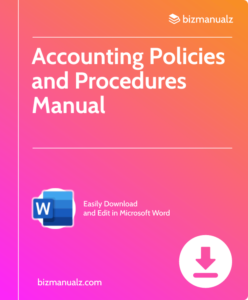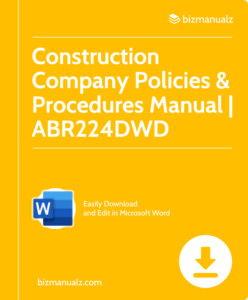Construction Accounting: A Guide for Contractors

Construction accounting plays a crucial role in the success of contractors and construction companies. In order to effectively manage their finances, contractors must have a comprehensive understanding of the financial processes and principles specific to the construction industry. This guide aims to provide contractors with a clear and concise overview of construction accounting, covering topics such as job costing, revenue recognition, and financial reporting. Construction accounting: a guide for contractors.
Understanding Construction Accounting
Whether you are a seasoned contractor or new to the industry, this guide will equip you with the knowledge and tools needed to navigate the complexities of construction accounting and make informed financial decisions.
Importance of Construction Accounting
Construction accounting plays a crucial role in the success of construction projects by providing accurate financial information and ensuring proper management of resources throughout the construction process.
Effective construction accounting allows contractors to track costs, manage budgets, monitor cash flow, analyze profitability, and comply with industry-specific regulations and standards.
By providing real-time financial insights, construction accounting helps stakeholders make informed decisions and adjust strategies accordingly.
The Basics of Construction Accounting
Construction accounting differs from traditional accounting methods due to the unique nature of the construction industry. It involves the tracking and allocation of costs related to specific construction projects.
The basic principles of construction accounting include revenue recognition, job costing, progress billing, and retention management.
Revenue recognition in construction accounting follows the percentage of completion method, where revenue is recognized proportionally as work on a project is completed. Job costing is vital to accurately allocate costs to specific projects, ensuring accurate pricing and profitability analysis.
Progress billing allows contractors to invoice clients periodically throughout the duration of the project, while retention management involves the proper handling and tracking of funds that may be withheld until the project is completed.
Key Terms in Construction Accounting
To fully comprehend construction accounting, it is important to understand key terms and concepts commonly used in the field. Some of these terms include:
- Allowance: A budgeted amount set aside for unforeseen costs or variations in the scope of work.
- Change Order: A document that authorizes additional work, modifications, or variations to the original contract.
- Work in Progress (WIP): Represents the value of work that has been started but not yet completed or billed.
- Overhead: Indirect costs that cannot be directly attributed to a specific construction project, such as office expenses or administrative costs.
- Retainage: A portion of the project payment withheld until the work is completed to ensure quality and completion.
Different Types of Construction Accounting Systems
Various accounting systems are used in the construction industry to manage the financial aspects of a project. Some common types of construction accounting systems include:
- Job Order Costing: This system is suitable for construction companies that work on custom projects or projects with diverse requirements. It allows costs to be tracked at a granular level for each individual job or project.
- Contract Costing: Contract costing is used when the project involves long-term contracts. It enables the tracking of costs for each contract, providing detailed financial information for evaluation and accounting purposes.
- Project Costing: Project costing is used for large-scale, complex construction projects. It helps monitor and control costs for the entire project, considering the interdependencies of various sub-projects and tasks.
Common Challenges in Construction Accounting
Like any specialized field, construction accounting comes with its unique set of challenges. Some common challenges faced by construction accountants include:
- Complex Cost Allocation: With multiple projects, tasks, and cost categories, accurately allocating costs can be challenging. Construction accountants must carefully track and allocate costs to ensure accurate financial reporting.
- Cash Flow Management: Construction projects often involve delayed payments, retention amounts, and uneven cash flows. Effective cash flow management is essential to ensure that there are sufficient funds to meet project expenses and maintain operations.
- Changing Regulations: Construction accounting is subject to industry-specific regulations and standards that can often change. Staying updated and compliant with these regulations is crucial to avoid penalties or legal issues.
- Integration of Technology: As construction technology evolves, there is a need for construction accountants to integrate various software tools and platforms into their accounting processes. This integration requires a deep understanding of both the construction industry and accounting systems.
Best Practices for Construction Accounting
To ensure accurate and efficient construction accounting, it is advisable to follow several best practices. These include:
- Standardized Chart of Accounts: Developing a standardized chart of accounts specific to the construction industry helps ensure consistent financial reporting across projects and provides better insights into project costs.
- Regular Reconciliation of Accounts: Regularly reconciling accounts helps identify and resolve discrepancies, ensuring accurate financial reporting.
- Accurate Job Costing: Implementing effective job costing practices allows contractors to accurately track project costs, analyze profitability, and make informed decisions.
- Clear and Transparent Communication: Maintaining clear communication between project managers, contractors, and accounting teams helps ensure that financial information is accurately reported and shared.
- Ongoing Training and Education: Construction accountants should stay up-to-date with industry regulations, software updates, and best practices through continuous training and education.
Software and Tools for Construction Accounting
Various software and tools are available to assist construction accountants in managing and streamlining their accounting processes. These tools offer features such as project tracking, job costing, progress billing, budgeting, and financial reporting. Some popular construction accounting software include:
- QuickBooks: A widely used accounting software that offers specific features for construction accounting, including job costing and progress billing.
- Sage 100 Contractor: A comprehensive software solution that integrates project management, accounting, and estimating into one platform.
- Viewpoint: A cloud-based software suite that provides functionality for construction accounting, project management, and resource planning.
Hiring a Construction Accountant
Given the complexities of construction accounting, many contractors opt to hire a dedicated construction accountant. When hiring a construction accountant, it is crucial to consider factors such as industry experience, knowledge of construction-specific regulations, proficiency in construction accounting software, and attention to detail. A qualified construction accountant can provide valuable insights and ensure accurate financial management throughout the project.
Benefits of Outsourcing Construction Accounting
Outsourcing construction accounting can offer several advantages to contractors. By outsourcing, contractors can leverage the expertise of specialized accounting professionals who understand the intricacies of construction accounting.
Outsourcing can also help reduce overhead costs associated with hiring and maintaining an in-house accounting department. Additionally, outsourcing allows contractors to focus on their core competencies and allocate resources more effectively, leading to improved project execution and profitability.
Future Trends in Construction Accounting
As technology continues to advance, several future trends are expected to shape the field of construction accounting. These trends include the increased adoption of cloud-based accounting systems, the integration of data analytics and business intelligence tools, and the automation of routine accounting processes through artificial intelligence and machine learning.
These developments have the potential to enhance the accuracy, efficiency, and overall effectiveness of construction accounting, improving financial management and decision-making for construction projects.
Construction Accounting
In conclusion, understanding construction accounting is vital for contractors to effectively manage project finances, comply with industry regulations, and make informed business decisions. By grasping the importance, basics, key terms, accounting systems, challenges, best practices, software tools, and hiring considerations involved in construction accounting, contractors can optimize their financial management processes and enhance project success.
Outsourcing construction accounting or embracing future trends can further contribute to improved financial performance and overall competitiveness in the construction industry.


















Leave a Reply